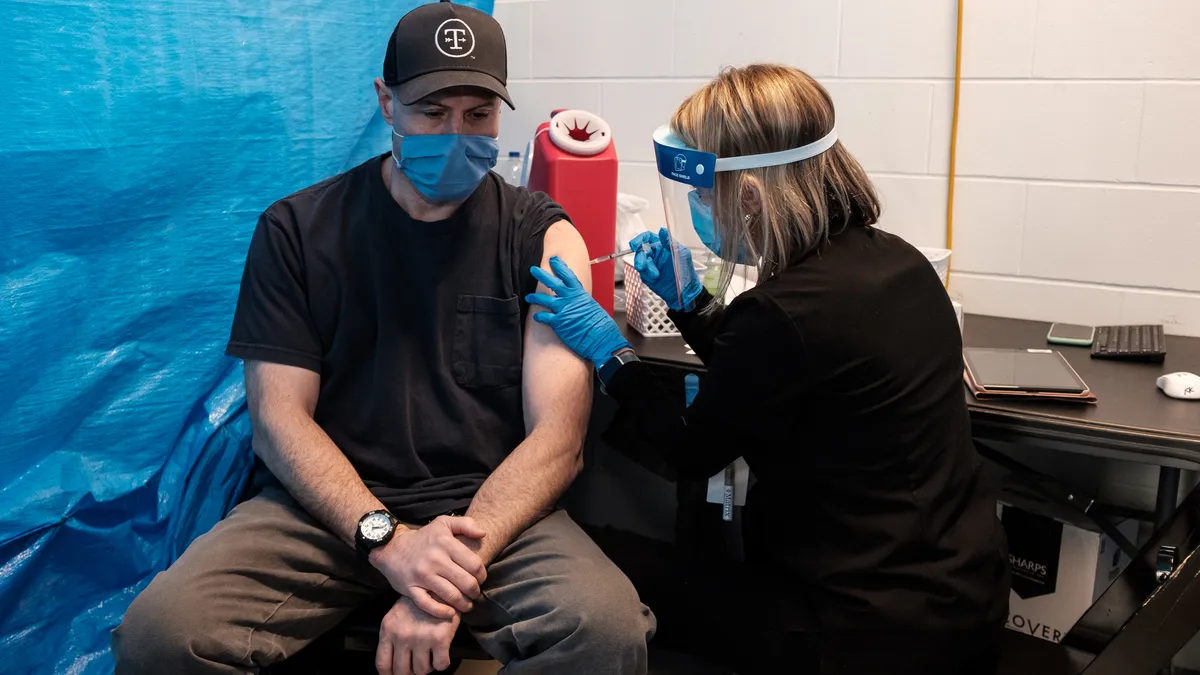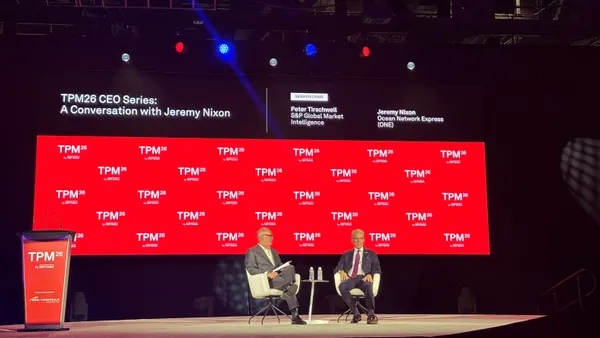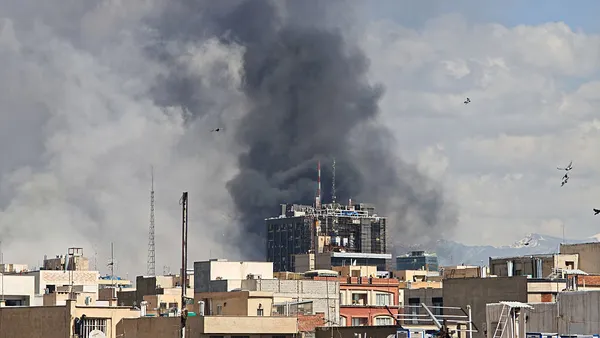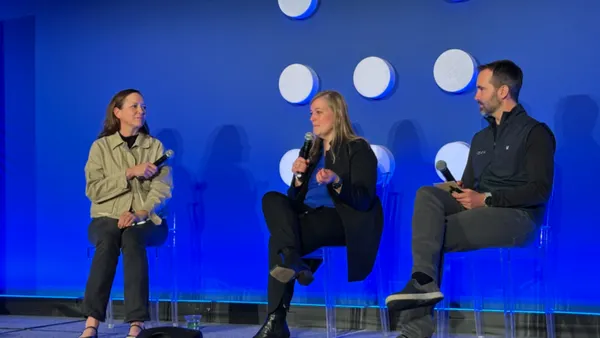Dive Brief:
- Tyson Foods will require its entire U.S. workforce to be fully vaccinated against COVID-19 by November. Office employees must meet an Oct. 1 deadline, while all other workers have until Nov. 1, pending negotiations at sites represented by unions. This would make Tyson the largest U.S. food company so far to require COVID-19 vaccinations for its entire workforce.
- Tyson is also offering $200 to frontline workers who get vaccinated, subject to negotiation with unions. This is in addition to its existing policy of compensating employees who get vaccinated outside of their shift or through an external provider with up to four hours of regular pay.
- Since February, Tyson has held more than 100 vaccination events at its facilities in the U.S., and more than 56,000 of its employees have been vaccinated. The company said "nearly half" of its U.S. employees have been vaccinated, but infection rates "remain low." With the mandate, the meat processor is taking a more aggressive approach as COVID-19 infections in the U.S. spike with the spread of the delta variant.
Dive Insight:
Tyson's mandate marks its most aggressive move yet in controlling a health crisis that has affected the lives of thousands of employees. According to a May 2021 analysis by Business Insider, there have been at least 4,585 cases of COVID-19 and 18 deaths linked to Tyson facilities in 15 states.
"Getting vaccinated against COVID-19 is the single most effective thing we can do to protect our team members, their families and their communities," Dr. Claudia Coplein, who was hired as Tyson's first chief medical officer in December, said in a statement. "With rapidly rising COVID-19 case counts of contagious, dangerous variants leading to increasing rates of severe illness and hospitalization among the U.S. unvaccinated population, this is the right time to take the next step to ensure a fully vaccinated workforce."
The meat processor said it has spent more than $700 million on costs associated with COVID-19, including buying masks, face shields and temperature scanners, installing protective barriers and providing on-site testing and vaccinations, including events in March in Arkansas, Kansas, North Carolina and Iowa. In April, Tyson began offering vaccinations to employees' families and household members.
Based on where many of Tyson's frontline employees are based, the meat processor has a lot of ground to cover. In Arkansas, where 20% of its U.S. workforce is based, fewer than half of adults have had at least one dose of the vaccine, according to the Mayo Clinic. In Mississippi, where Tyson has four plants, barely four in 10 adults have had one dose.
At a vaccination event in March in Council Bluffs, Iowa, roughly 65% of workers at two local Tyson plants received a dose. But some employees confessed to being concerned about side effects of the vaccine.
The effectiveness of Tyson's mandate in increasing its vaccination rate is uncertain, especially at at a time when many meat processors are struggling to find frontline workers. It also goes further than a similar requirement announced this past week by Walmart — the largest employer in the U.S. — that all office employees get vaccinated by Oct. 4.
Complicating the picture for Tyson: It needs to negotiate the mandate specifics at unionized plants. In a statement, the United Food and Commercial Workers Union, which represents 24,000 Tyson meatpacking workers in the U.S., said it was "concerning" that the company "is implementing this mandate before the FDA has fully approved the vaccine."
The company is making exceptions for workers who request a medical or religious accommodation.

















